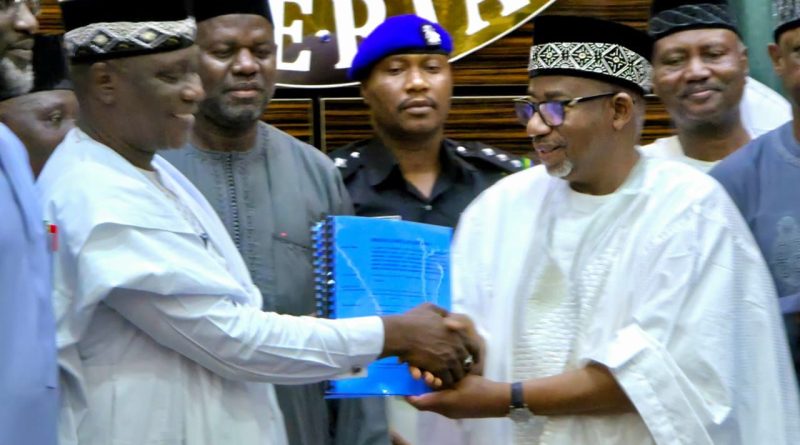Bauchi Gov signs laws establishing 13 new emirates, one chiefdom
Bauchi State Governor Bala Mohammed has signed into law the bills establishing 13 new emirates and one chiefdom, in addition to the state’s existing six emirates.
Immediately after assenting to the bills at the Government House in the state capital on Tuesday, Mohammed listed the newly created emirates as Burra at Burra, Danbam at Danbam, Darazo at Darazo, Duguri at Yuli, Gamawa at Gamawa, Giade at Giade, Toro at Toro, Warji at Katangar Warji, Lere at Lere, Jama’a at Nabordo, Lame at Gumau, Ari at Gadar Maiwa, and Bununu at Bununu, while the Zaar Chiefdom will be located at Mrim.
The governor directed the State Attorney-General and the Secretary to the State Government to gazette the law and circulate copies to relevant authorities immediately.
He also warned that anyone attempting to cause unrest or disrupt the peace following his assent to the law would face the full weight of the law.
“The security agencies here have been fully empowered to act decisively to sustain peace and order.
“Additionally, any government official or traditional ruler opposing this reform or engaging in acts capable of undermining it will face disciplinary action. Leadership is from God, and we will all give account of our stewardship,” he stated.
Justifying the reform, Mohammed said it was aimed at enhancing grassroots governance, attracting development to local communities, and giving residents stronger voices in decision-making.
According to him, the reform will “address perceived injustices and foster unity among diverse groups; recognise cultural heritage and promote inclusivity; while integrating traditional institutions with modern governance to keep them relevant partners in development, peace, and progress.
“It will also boost revenue generation at the local level for community-based projects and strengthen data collection and statistics, which are vital in determining allocations to states and local governments, as well as attracting donor and international interventions.
“This initiative is not driven by politics but by policy; not as a reward for loyalty, but as recognition of merit and necessity.”
He described the reform process as “one of the most consultative and transparent ever undertaken in the state.”
Mohammed explained that the Hamza Koshe Akuyam Committee, made up of respected citizens and experts, received hundreds of memoranda from communities across the 20 LGAs.
“The committee held public hearings, took presentations, and visited other states to learn from their experiences. It also developed clear criteria for evaluating each request, considering history, population, social cohesion, and economic viability,” he said.
